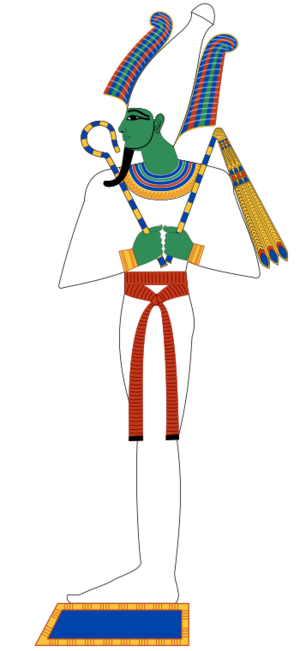List of gods and goddesses facts for kids
This article is about deities, which are like gods and goddesses, from different polytheistic religions and mythologies around the world. In polytheistic religions, people believe in and worship many gods and goddesses, not just one. These deities often represent different parts of nature, human feelings, or important ideas. For example, there might be a god of the sky, a goddess of love, or a deity of wisdom. Learning about them helps us understand ancient cultures and their beliefs.
Contents
Discovering Deities: Gods and Goddesses of Ancient Worlds
Gods and goddesses have been a huge part of human history and culture. They appear in stories, art, and traditions from all over the globe. These powerful beings were often believed to control the world around us, from the weather to human destiny. People would pray to them, build temples in their honor, and tell amazing stories about their adventures and powers.
Exploring Different Cultures' Gods
Many ancient civilizations had their own unique sets of gods and goddesses. Each culture's deities reflected their values, fears, and hopes. Here are some of the most well-known groups of deities from different parts of the world:

- Ancient Egyptian deities: These gods were often linked to the Nile River, the sun, and the afterlife.
- Mesopotamian deities: From ancient lands like Sumer and Babylon, these gods were powerful and often connected to cities and natural forces.
- Ancient Greek deities: Famous for their dramatic stories and human-like qualities, living on Mount Olympus.
- Ancient Roman deities: Many Roman gods were similar to Greek gods, but they often had different names and sometimes different roles.
- Norse deities: Gods from Northern Europe, known for their bravery, magic, and epic battles, like those in Valhalla.
- Hindu deities: A vast and diverse group of gods and goddesses from India, representing many aspects of the universe.
- Hindu gods
- Devi (Goddesses)
- Japanese deities: Known as Kami, these deities are often linked to nature, spirits, and the founding of Japan.
Gods with Many Names: Similar Deities Across Cultures
It's interesting to see how different cultures sometimes had gods and goddesses who were very similar, even if they had different names. This often happened when cultures traded ideas, or when they faced similar challenges and came up with similar ways to explain the world. For example, a god of war in one culture might have a very similar role to a god of war in another.
Why Gods Are Similar in Different Mythologies
Sometimes, ancient people would meet and share their stories and beliefs. This could lead to similar gods appearing in different mythologies. Also, many cultures faced similar challenges, like needing good harvests or protection in battle. So, they might have created similar types of gods to help them with these things. The table below shows some examples of gods and goddesses who had similar roles or characteristics in different ancient cultures:
| Greek Version | Roman Version | Etruscan Version | Norse Version |
|---|---|---|---|
| Adonis | Atunis | ||
| Aphrodite | Venus | Turan | Freyja |
| Apollo | Apollo | Aplu | Baldur |
| Ares | Mars | Laran | Tyr |
| Artemis | Diana | Artume | Skadi |
| Athena | Minerva | Menrva | Frigg, Freya |
| Chloris | Flora | ||
| Demeter | Ceres | Sif | |
| Dionysus | Bacchus | Fufluns | |
| Eos | Aurora | Thesan | |
| Hades | Pluto | Aita | Hel |
| Harmonia | |||
| Hebe | Juventas | Idunn | |
| Hecate | Trivia | ||
| Hephaestus | Vulcan | Sethlans | Thor |
| Hera | Juno | Uni | Frigga |
| Hermes | Mercury | Turms | Hermod |
| Hestia | Vesta | ||
| Hypnos | Somnus | ||
| Iris | Arcus | ||
| Nemesis | Nemesis | ||
| Nike | Victoria | ||
| Poseidon | Neptune | Nethuns | Njörd |
| Persephone | Proserpina | Ēostre | |
| Selene | Luna | Lusna | |
| Tyche | Fortuna | ||
| Zeus | Jupiter | Tinia | Odin |
Related pages
 | Frances Mary Albrier |
 | Whitney Young |
 | Muhammad Ali |

